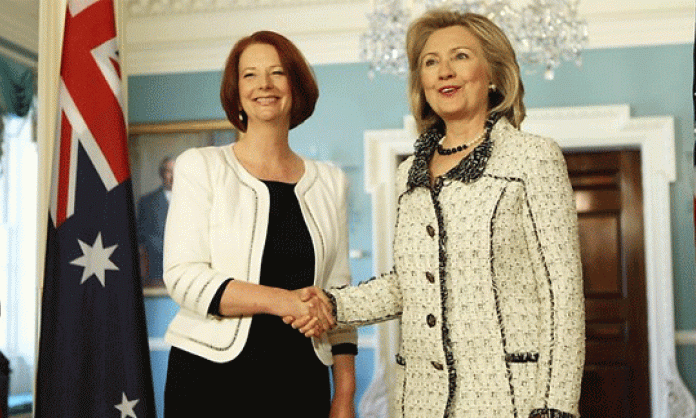The reaction to Antony Loewenstein’s insightful opinion piece in the Guardian about the state of feminist social commentary in the West demonstrates the veracity of his argument.
To begin with, the tonnage of complaints about a man daring to criticise Western feminism comically illustrates the point Loewenstein makes about the destructive influence of identity politics that pervades so much discussion of women’s rights. According to this logic, women are better served by men taking no interest whatsoever in sexism, or alternatively, sycophantically cheering on women in power.
The reaction also highlights how empty the debate is – barely any of those on social media so offended by Loewenstein bother to engage with the content of his argument. Clementine Ford’s inane comment, “silly me, I always assumed it was patriarchy and misogyny letting down women the most”, indicates the way in which identity politics and lack of intellectual rigour coalesce to render utterly vacuous what might otherwise have been an opportunity to discuss what sort of politics are needed to win liberation for women today. Perhaps this also reflects that Loewenstein has intruded a little too far into the niche of those who hope that writing about women’s issues will be their ticket to influence and well-paid careers.
Loewenstein is overwhelmingly right about the influence of conservative and Labor Party politics on those who purport to be feminist commentators today. Jenna Price, in her hostile response to Loewenstein, argues: “the fact is that we get to choose from Julie Bishop or Julia Gillard. And only one of those women has publicly recognised that misogyny is an issue”. In other words, Gillard’s misogyny speech should to some extent excuse her trashing of women’s rights in relation to welfare, education and immigration, because the only choice we have is her or Julie Bishop. This is classic Labor Party circular reasoning and the sort of mentality that Loewenstein rightly argues is counter to challenging sexism today.
Ford, who intends to “weep tears of joy” when Tanya Plibersek becomes prime minister, is little better. While she enthusiastically attacks accused sexists in the low-brow world of AFL football, she and others like her have maintained a stony silence around the rape accusations against ALP leader Bill Shorten. Presumably it’s easier to take aim at footballers, who do not wield much influence over hiring and firing practices at Fairfax or the Guardian, than the genuinely powerful – those who are in a position to make and break the careers of aspiring social commentators.
These self-serving double standards on the part of Western feminists do not present a way forward for those wanting to confront sexism today. Loewenstein is right to argue that we need a political approach that goes beyond cheering on women in the establishment like Gillard and Hillary Clinton. What we do need is the politics of liberation; politics that attempts to unite women and men around economic and social demands, and which argues that those at the top who benefit from the sexist status quo, including women, are the ones who need to be confronted.





